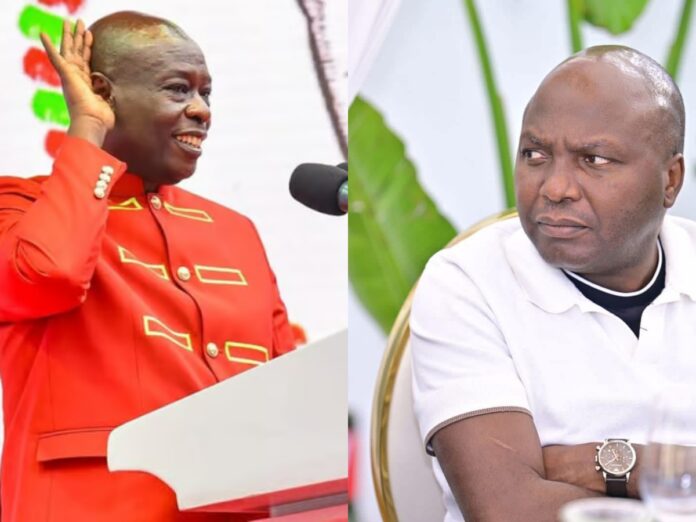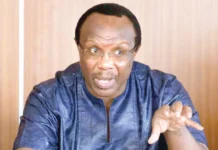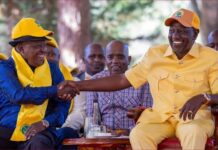In Kenya, tribal politics has never truly left the national stage. It merely goes quiet until the next controversy.
A new round of public debate has been sparked by remarks made by former Deputy President Rigathi Gachagua, who claimed that President Ruto’s administration is sidelining the Kikuyu community, which he says “controls the economy.”
Gachagua’s comments, made during a rally, were widely shared online and drew both outrage and support. In one particularly viral response, activist Wanjiru Githae challenged Gachagua to rise above ethnic appeals and act like a statesman, not a tribal chieftain.
Renowned lawyer Donald Kipkorir summed it up bluntly: “Kenya is a hilarious country. Those attacking Gachagua for tribalism are themselves beneficiaries of tribal mathematics.” His critique, widely circulated online, points to a deeper, unspoken truth—tribal loyalty remains a pillar of political appointments and alliances, no matter who is in power.
Kipkorir’s comments have added a layer of uncomfortable honesty to a national debate that has once again laid bare the enduring role of tribe in Kenya’s political economy. “Even their drivers, advisors, and mistresses are from their own tribe,” Kipkorir quipped, noting the selective outrage directed at Gachagua.
Her rebuke struck a nerve, not just because of Gachagua’s words, but because of Kenya’s long and complex history with ethnic arithmetic in politics.
Lawyer Donald Kipkorir weighed in, calling Kenya a “hilarious country,” noting that even those decrying tribalism often surround themselves with staff and allies from their own ethnic groups.
This paradox isn’t new. During President Kenyatta’s administration, criticism abounded over Kikuyu dominance in parastatal appointments. Under Moi, it was the Kalenjin elite who enjoyed state favour. Jomo Kenyatta, Kenya’s founding president, set the tone early with a close circle drawn from his native community.
The National Cohesion and Integration Commission (NCIC), established to mitigate these very dynamics, has faced sharp criticism for perceived inaction.
Though it monitors hate speech and incitement, it has yet to publicly sanction Gachagua for his remarks.
MPs aligned with the Azimio coalition, particularly from ODM, have accused Gachagua of undermining national unity and exploiting tribal sentiment to re-enter active politics after being sidelined in the current administration.
The timing is notable. The June–July Gen Z-led protests against corruption and poor governance saw strong participation from regions traditionally considered Jubilee and UDA strongholds: Central Kenya, Nairobi, Eldoret, Ngong. In this context, calls for Mt Kenya “unity” are being interpreted as strategic, not just cultural.
Kenya’s political landscape remains shaped by ethnicity, despite younger generations advocating for issue-based leadership. Whether Gachagua’s approach is a political misstep or a calculated repositioning remains to be seen.
What’s clear is that the country is, once again, being forced to ask itself: can Kenya ever move beyond tribe?



















